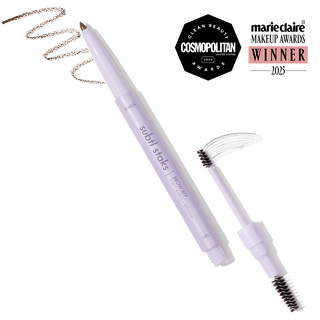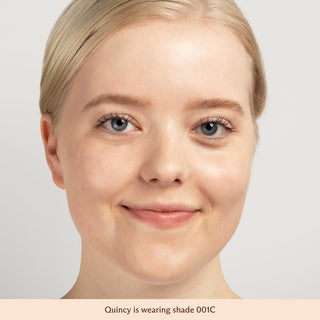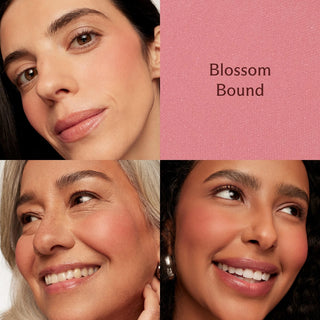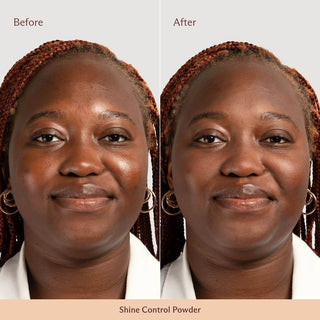Low Contrast Makeup Tutorial: Subtle Yet Stunning
Hey everyone, Keira here! Welcome back to the Subtl blog. Today, we’re diving into a low contrast makeup look that’s still a bit fun—because who says low contrast has to mean no drama? If you love soft, light makeup but still want something eye-catching, this tutorial is for you. It’s quick, easy, and honestly, I pulled this off in just 5–10 minutes. Ready to recreate the look? Let’s get into it.
What Is Low Contrast Makeup?
First, let’s talk about what low contrast even means. This concept has been popularized by French makeup artist Ali (I hope I’m saying that right), who introduced the idea of low, medium, and high contrast makeup. It’s gone viral—thank you, TikTok—and has been such a game-changer for figuring out why some makeup looks work for you while others just don’t.
Ali created a filter that shows your contrast level by applying a black-and-white overlay to your face. If your features—like skin, hair, and eyes—blend into a softer gray, you’re likely low contrast. If they’re more defined, you’re medium or high contrast. For example:
- Low contrast: Subtle differences in your features.
- Medium contrast: Balanced, not too stark or too soft.
- High contrast: Dramatic differences—think light skin, dark hair, bold brows.
I’m pretty sure I’m medium contrast (sometimes teetering on low), but this technique has helped me understand why certain looks don’t flatter me. For example, super light lips can make me look washed out. Once I learned my contrast level, it was like a light bulb moment for my makeup routine.
Low Contrast Look: Step-by-Step
Here’s the thing about low contrast makeup: It’s all about working with softer tones that complement your natural features. Let’s break it down.
Prep & Base
- Start with lip balm: I used Subtl’s Vanilla Sugar lip balm—it smells incredible.
-
Spot conceal, don’t overdo it: For this look, I skipped foundation and just used Subtl’s Cream Concealer to spot conceal. It’s perfect for keeping things natural and letting your skin shine through.
- Pro Tip: If your concealer looks patchy, that’s probably a skincare issue. Hydrate your skin first for a flawless finish.
- Add glow: I prepped my skin with Supergoop’s Glow Screen. It creates a smooth canvas for concealer and gives that lit-from-within look.
Set the Base
- Use a Shine Control Powder where needed (hello, T-zone). Lately, I’ve been using a blush brush for this—it gives a softer finish. Apply in a triangle shape under your eyes and around the nose for a natural, matte effect.
Cheeks & Lips
- Stick to soft tones close to your skin tone. I used Mauve in the Maldives Lip & Cheek and Apricot Avenue Powder Blush for my cheeks. A little on the nose too—because who doesn’t love that sun-kissed vibe?
- Add a touch of Highlighter in Champagne for some subtle dimension.
Eyes
This is where we add some drama without going overboard:
- Start with brown eyeliner: Line your eyes with a soft brown liner. Don’t worry about being perfect—we’re smudging it out for a smoky effect.
- Add shimmer: Choose a shade just slightly darker than your skin tone. I used the pinky-rosy shimmer from the Takeoff Eyeshadow Duo and tapped it on with my finger for a super easy smoky eye.
- Blend it all together: Use a fluffy brush to soften everything and add a little more brown if needed.
Brows
Low contrast brows are all about enhancing—not overdoing—your natural shape. I used the Brow BFF in Medium Brown for light, feathery strokes. No crunchy, clumpy gels here!
Mascara
For low contrast, brown mascara is your best friend. I used L’Oréal’s Voluminous Mascara in Black-Brown. Want an even softer look? A little Vaseline on your lashes does the trick too.
Lips
I went with the Runway to Rose Lip & Cheek for a soft, polished finish. It’s subtle but still pulls the whole look together.
Final Look
And that’s it—your low contrast makeup is complete! The result? A soft, natural look that enhances your features without overpowering them. It’s subtle yet stunning, and it’s perfect for everyday wear.
Let me know in the comments: Have you figured out your contrast level yet? What questions do you have about how to determine it? I’d love to hear your thoughts and help you out!
Thanks for reading, and don’t forget to subscribe to our YouTube channel for more tutorials. See you next time! 💛













